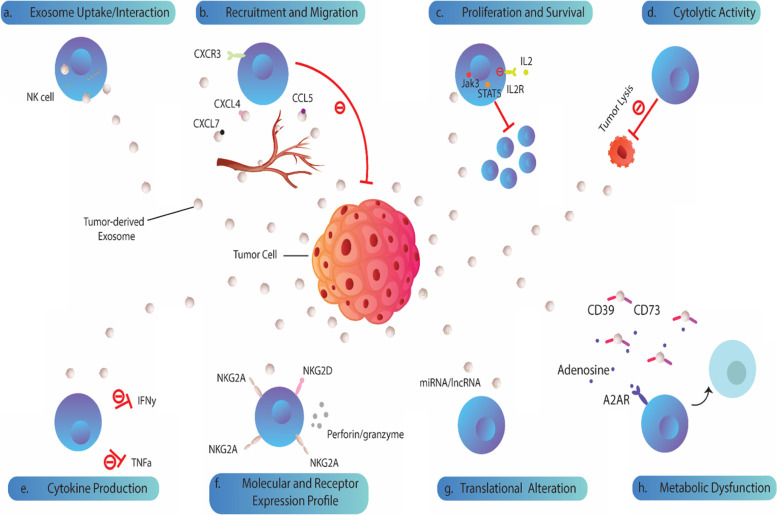Fig. 1.
Biological impacts of tumor-derived exosomes on NK cells. a) Tumor-derived exosomes (TDEs) can be taken up by or interact with human NK cells. b) By expressing surface chemokine/chemokine receptors, TDEs can inhibit recruitment and migration of NK cells toward tumor milieu. c) These virus-sized particles can also block the effect of IL-2 on NK cells proliferation in a concentration dependent manner, either via decreasing the phosphorylation of JAK3 and STAT-5 or downmodulating IL-2R on NK cells. d) Cytolytic activity, and e) secretion of key cytokines, IFN-γ and TNF-α, are also compromised in exosome-exposed NK cells. f) Tumor exosomes can downmodulate the expression of activating receptors on NK cells, such as NKG2D, and cytotoxic mediators, including perforin and granzyme, demolishing tumor recognition and lysis by NK cells. g) miRNA (miR-92b and miR-23a) or lncRNA (circUHRF1 and SNHG10) cargo of TDEs may alter translational status of cells, leading to NK cell suppression. h) Co-expression of CD39/CD73 pair on TDEs drive higher levels of adenosine production that can be engaged with cognate A2AR receptors on NK cells, leading to their metabolic dysfunction

